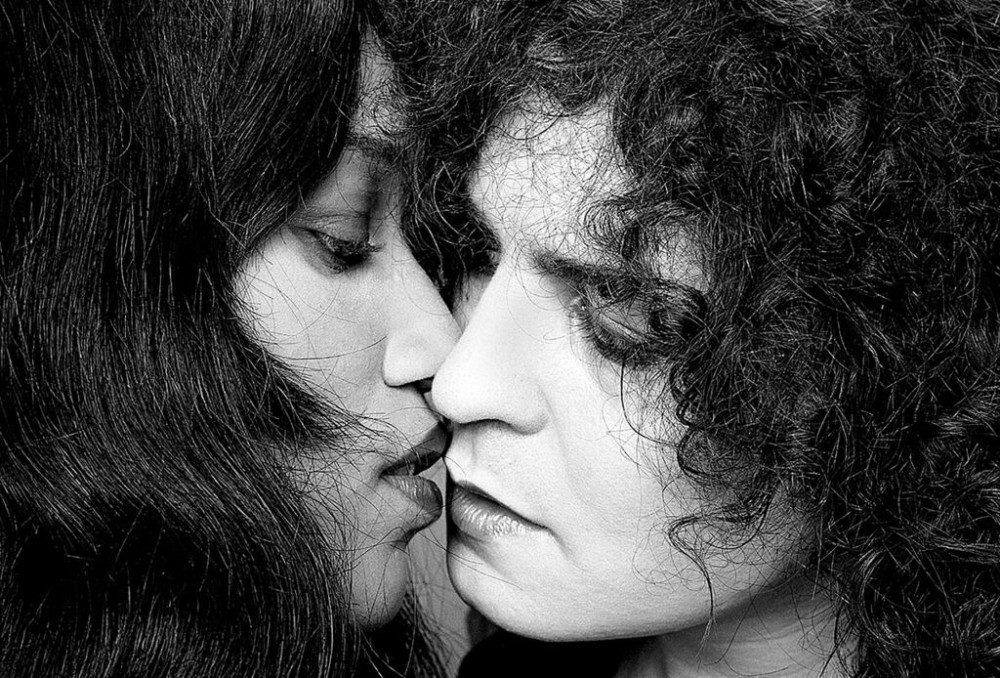
ONLY NOISE explores music fandom with poignant personal essays that examine the ways we’re shaped by our chosen soundtrack. This week, Liz Ohanesian hits replay on the unlikely track that gave her strength on dance floors and in traffic alike.
Stuck in the perennial gridlock that crisscrosses Los Angeles, blasting the same oldie over and over again, I must have seemed ridiculous. But, that’s what happens when your jam is less than two-and-a-half minutes long. Right at the moment when I felt like I would become one with the song, it ended; I had no choice but to hit that little button on the CD player and repeat it.
“Sometimes I feel I’ve got to run away,” it began, every time.
Yes, I’m talking about “Tainted Love,” but not the ’80s synthpop sensation. That would have made more sense, since Soft Cell’s big hit single had never really left L.A. radio. This was the original, a concise soul number recorded by Gloria Jones in the mid-1960s that was a far more anachronistic choice during the years bridging the 20th and 21st centuries.
I played that song loud enough to drown out any of my pathetic attempts to sing along to it, all the while wishing that I could belt out lines like “Once I ran to you/Now I’ll run from you” with all of Jones’ confidence. I had no desire to be a singer; I just wanted to be able to stand up for myself. With “Tainted Love,” I could or, at least, I could in the relative privacy of my car stuck in traffic on a Los Angeles freeway.
Jones was a young singer from Los Angeles when she recorded “Tainted Love,” penned by Ed Cobb, which was released on the flipside of the single “My Bad Boy’s Comin’ Home” in 1965. Since the single didn’t chart, “Tainted Love” became something of an obscurity. That changed to an extent in the 1970s, when the B-side attained cult popularity within the rarity-fueled Northern Soul scene in the U.K. Jones, who had gone on to perform in Hair, sing backup for T. Rex, and have a child with the band’s frontman Marc Bolan, re-recorded the song for her 1976 solo album, Vixen. Still, that wasn’t the version that became a mainstream earworm.
In 1981, then-up-and-coming synthpop duo Soft Cell put their own spin on “Tainted Love.” Their cover would go on to become legendary. It was a number one single in the U.K. and hit the top 10 in the U.S., while turning up on charts in numerous countries. So popular was Soft Cell’s rendition of the ’60s soul song that it became the reference point for subsequent versions. In 1984, the experimental electronic group Coil covered “Tainted Love.” Theirs was a slow, haunting reflection upon the AIDS crisis, but one where the influence of Soft Cell is still present in its structure (plus, Soft Cell singer Marc Almond makes an appearance in the video). Many years later, in 2001, Marilyn Manson had a bit of success with a cover that was very clearly derived from Soft Cell’s take on the song.
I grew up with Soft Cell’s 1981 version of “Tainted Love,” which was a radio staple in Los Angeles that hung around long after the ’80s ended, and became quite a fan of the band too. Non-Stop Erotic Cabaret, their debut album and the one that contains “Tainted Love,” remains one of my all-time favorite records. But hearing the original version of the song I thought I knew so well was nearly life-changing.
It happened sometime in the mid-to-late 1990s when I was a college student, going to parties where kids rolled up to the venue on Vespas and DJs dropped vintage soul tracks into their sets. I can’t remember exactly where I heard it, but I remember it being a song played with enough frequency to become part of the sonic fabric of my life at that time. Every time I danced to “Tainted Love,” my connection to it grew stronger.
“I give you all a girl can give you,” Jones sang.
Hearing “Tainted Love” from the perspective of a woman was eye-opening. Jones was on the cusp of her teens and twenties when the song was recorded and released, around the same age I was while dancing to it a few decades later. Her voice, though, sounded older. It was deep, raw and powerful, resonating on those dance floors with authority.
I had always thought of “Tainted Love” as a song about romance-gone-wrong or a relationship at its bitter end. Maybe it is, but when Jones sang it, there was always another layer. Any sadness in the lyrics, “Take my tears and that’s not nearly all,” gave way to liberation, of knowing that you’re worth more than whatever crap someone else throws your way. It was the voice of wisdom set against a high energy bounce of a beat that reminded me to take care of myself. Now, I heard “Tainted Love” as a song about empowerment. It became my feminist jam.
I wasn’t necessarily feeding a broken heart all those times I blasted “Tainted Love.” Sure, sometimes that was the case, but the song came to mean so much more to me. It was the middle finger that I couldn’t bring myself to flip, the “fuck you” that I often left unsaid. It was the anthem for every life or work situation where I wasn’t valued, an expression of the anger and frustration that I tried to contain and a reminder that I had to assert myself.
In the early years of my own adulthood, that (still sorely under-appreciated) recording of “Tainted Love” became a sort of surrogate voice as I was trying to find my own. With age, I’ve relied on it less, but it’s still there for me to turn up loudly whenever I need it.

